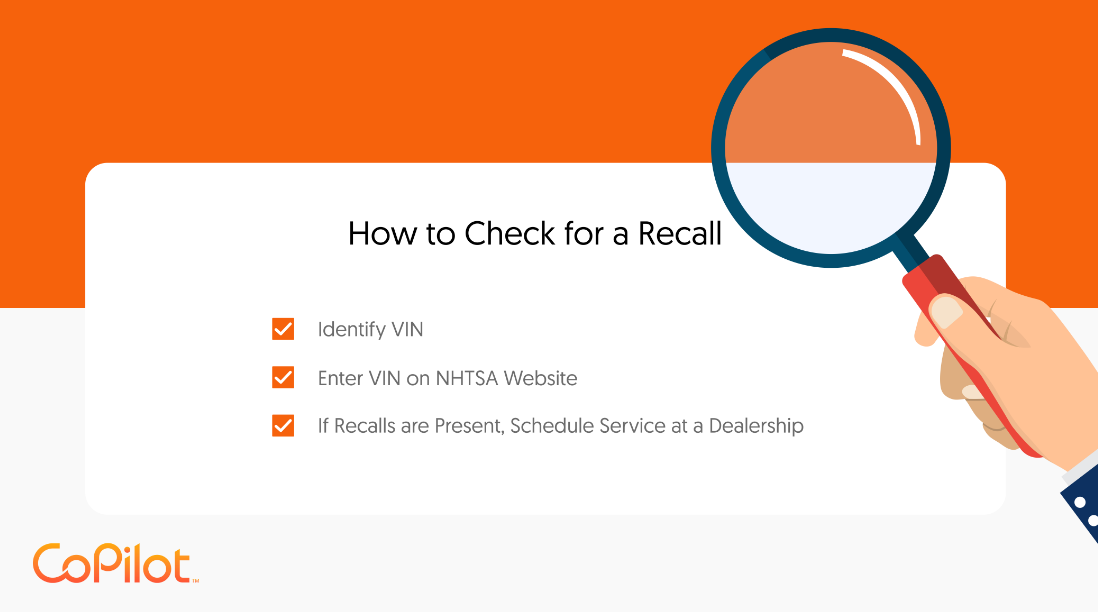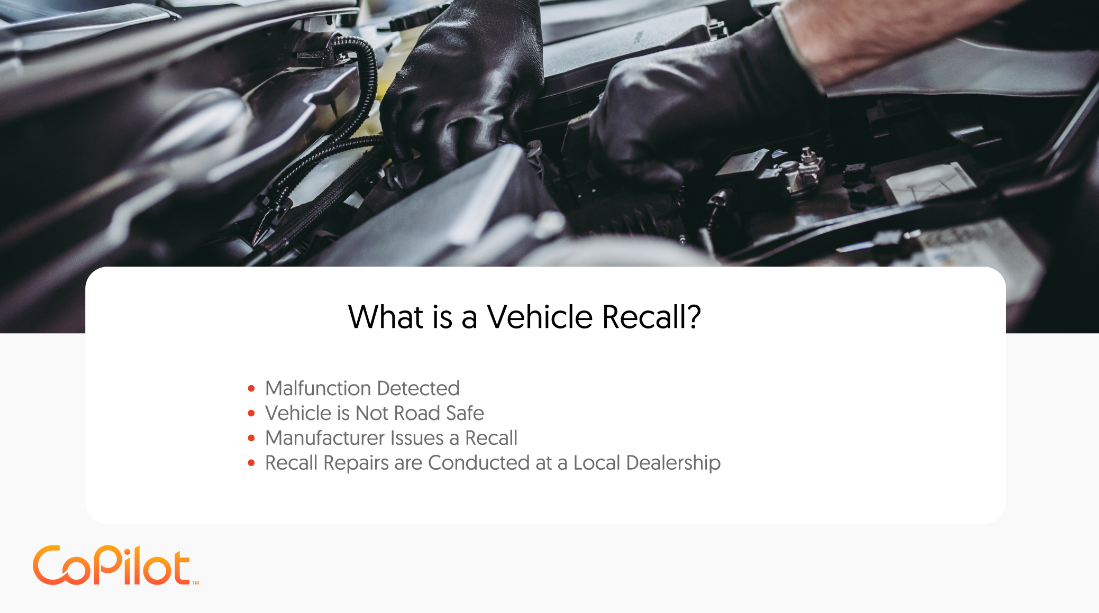Car Recalls-What are they and has yours been affected?

You’ve undoubtedly heard of a vehicle factory recall.
It’s the process by which vehicles are called back into the manufacturer to fix some glaring mistakes.
The thing about recalls is that you might have one or more on your vehicle and never even know it.
It’s crucial to continually check out what’s going on with the make, model, and year of your car. You could be driving around with multiple severe safety hazards, and it’s always better to be safe than sorry.
But what specifically is a vehicle recall? How can you tell if you have one or more? And, perhaps most importantly, if you do have recalls on your car, are they free to fix?
This article will answer these questions and more.

What is a Car Recall?
What exactly does it mean when there is a recall on your vehicle?
A recall is issued when a vehicle’s manufacturer or the National Highway Traffic and Safety Administration (NHTSA) concludes that a part of the car isn’t up to modern safety standards. Typically this means that the vehicle can pose a risk on the road.
Recalls generally start as user complaints. When several drivers report having the same issues with the same vehicle make and model, the NHTSA will open an investigation. During that investigation, the association will perform tests on the vehicle in question to determine if the cause of these common issues is a hardware malfunction. If they find definitive proof that the car has a faulty component, the car manufacturer will issue a recall.
BUY NEARLY-NEW INSTEAD OF NEW
When buying a car, there’s one approach guaranteed to get you the best deal. Buying a nearly-new car (5 years or younger) with low mileage will save you thousands off MSRP, and CPO programs mean you’ve got the same coverage as if you bought new. Check out all of the nearly-new cars in your area and see how much you can save.
How to Check if Your Vehicle Has a Recall
If there is a recall on your vehicle, how will you hear about it?
It’s nerve-wracking to imagine driving a car that has a significant safety issue without knowing.
Generally, the manufacturer will notify you of an outstanding recall. However, there are specific ways that you can remain up to date on your car’s recall standing on your own.
You will generally receive a letter in the mail within 60 days of the recall if your car is affected. If you’re proactive and want to check yourself, we’ve listed another approach to see if your vehicle has a recall below.

Identify Your VIN
The first step in determining the recall status of your vehicle is to identify your VIN. That’s an identifying feature of every car. Your VIN is a 17-character vehicle identification number printed behind the lower driver’s side corner of the windshield.
It’s usually a good idea to take a picture of your VIN. Whether you’re checking out the status of a recall or renewing your registration, it’s something you’ll need to produce more often than you might think.
Once you have the VIN in hand, you’ll be able to check with an online resource to figure out what’s going on with your car.
Check the NHTSA Database
The National Highway Traffic Safety Administration has a page where you can go to find out what’s going on with recalls on your vehicle. It’s an online database of all current recalls. You can find it by Clicking Here.
Once you’re on the page, it’s time to start entering your information. Thankfully, the National Highway Traffic Safety Administration’s recall page only needs one bit of information — your VIN. Enter your VIN, and a list of results will pop up.
Hopefully, you’ll get a confirmation that there are no open recalls on your vehicle. If that’s the case, then you’re done. However, if you find any recalls, move onto the next step.
Talk To Your Dealer
If you’ve got outstanding recalls, you need to act quickly. You’re driving around in an unsafe vehicle. To rectify this potentially hazardous situation, you’ll need to take the vehicle into your local dealership.
Recall work takes place at your dealership by scheduling an appointment. Most recalls are minor and will allow you to drive the car into the dealership with no issues. If it’s a severe recall, such as a malfunction with the brake system, the dealer can arrange to have the vehicle towed.
Whatever you do, don’t continue to drive for long periods with open recalls. There’s a recall on these parts for a reason. It’s important to get the car in to have them fixed as soon as possible. If the recall presents a clear danger to yourself and others, don’t drive it at all.
Are Recalls Free?
The primary question on most minds at this point should be about cost. If you have a recall on your vehicle, are you then subject to high-cost repairs?
Thankfully, recalls are 100% free of charge. The manufacturer is admitting fault, and nothing that you’ve done has made this situation into the problem it has become. Therefore, the repairs are thoroughly covered, even if you no longer have a valid manufacturer warranty.
If there’s an open recall, the recall letter will most likely direct you to a local dealership where you can take your car for a repair or replacement. You don’t have to return your vehicle to the manufacturer.
That’s not to say the dealership is providing this service for no cost whatsoever. The dealer should fix the recall issue free of charge to you. However, the manufacturer will still pay the dealership for the repairs.
In Conclusion
If you find that you have an open recall on your car, it’s not the end of the world. You don’t have to stress unnecessarily. A recall, while still a serious issue that you need to address quickly, is free, easy, and will mean your car will run in peak condition.
Always be on the lookout for recall letters, but it’s also good to be proactive. Check with the NHTSA database to ensure that everything is in proper working order.
Sometimes recall letters don’t come, or you might mistakenly think that the message is junk mail and throw it away without reading it. That’s why it’s a good idea to check every few months to be.







